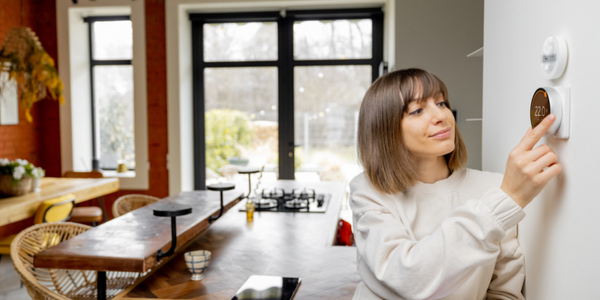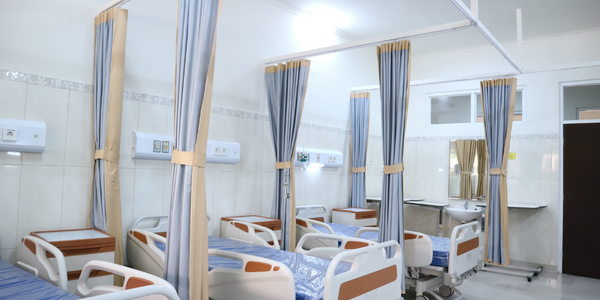Grainger plc – a proactive approach
公司规模
Large Corporate
地区
- Europe
国家
- United Kingdom
产品
- Qube PM
- Qube Tenant Portal
技术栈
- Property Management Software
- Tenant Portal
实施规模
- Enterprise-wide Deployment
影响指标
- Customer Satisfaction
- Productivity Improvements
- Digital Expertise
技术
- 功能应用 - 远程监控系统
适用功能
- 设施管理
- 商业运营
用例
- 楼宇自动化与控制
服务
- 系统集成
- 软件设计与工程服务
关于客户
Grainger plc, founded in 1912, is the UK's largest listed specialist residential landlord and property management company. With a portfolio worth approximately £2 billion, Grainger manages around 20,000 properties valued at over £3 billion on behalf of themselves, investors, and partners. The company is committed to being a leader in the residential market, delivering sustainable long-term returns to investors and partners. Grainger's business portfolios are diverse, including development management, fund management, asset and property management, and residential landlord services. The company is known for its agility and prudent business approach, which has contributed to its significant growth and success in the residential property market.
挑战
Grainger plc, the UK's largest listed specialist residential landlord and property management company, faced a significant challenge in managing their first purpose-designed build-to-rent property, Abbeville Apartments, in Barking, East London. The company needed a robust system to handle the 'sales' process of finding, processing, and installing new tenants into the property. Their existing structures were not sufficient to track applicants or prospective tenants efficiently, leading to manual processes that were prone to errors, time-consuming, and demotivating for staff. Grainger required a solution that could integrate seamlessly with their existing Qube PM application to streamline these processes and support their rapid expansion into the Private Rented Sector (PRS).
解决方案
Grainger chose Qube Global Software's sales, lettings, and management functionality to support their PRS development. The Qube PM application was integrated with new elements to handle the 'sales' process of finding, processing, and installing new tenants into Abbeville Apartments. This integration allowed Grainger to link the details of each unit to online property marketing portals like Rightmove and Zoopla, match suitable applicants to units, and manage the tenancy sign-up process. The system also facilitated the administration required for new customers, such as requesting tenancy monies, confirming, and completing new tenancies. Grainger's long-established relationship with Qube, spanning over 30 years, played a crucial role in the successful implementation of this solution. The collaboration evolved from a customer-supplier relationship to a highly collaborative partnership, ensuring that the integration was seamless and met Grainger's business requirements effectively.
运营影响
数量效益

Case Study missing?
Start adding your own!
Register with your work email and create a new case study profile for your business.
相关案例.

Case Study
Turning A Stadium Into A Smart Building
Honeywell created what it called the “intelligent system” for the National Stadium in Beijing, China, turning the venue for the opening and closing events at the 2008 Summer Olympics into a “smart building.” Designed by highly controversial artist Ai Weiwei, the “Bird’s Nest” remains one of the most impressive feats of stadium architecture in the world. The 250,000 square meter structure housed more than 100,000 athletes and spectators at a time. To accommodate such capacity, China turned to Honeywell’s EBI Integrated Building Management System to create an integrated “intelligent system” for improved building security, safety and energy efficiency.

Case Study
BACnet enabled Wireless Temperature Monitoring System
Client offered a Temperature Monitoring System which consists of Wireless Transmitters and Application Software. Third party BACnet Application such as a Building Automation System needs access to vital parameter such as temperature, humidity, CO2, etc., measured by wireless sensor devices. Client needed a solution to allow data exchange from its Temperature Monitoring System with BMS.

Case Study
Medanta the Medicity
Medanta is one of India's largest multi-super specialty institutes located in Gurgaon, India. Some of the key challenges facing Medanta included: - No Monitoring & Control over Energy Use, Indoor Air Quality, Indoor Lighting Quality & Noise Levels. - No compliance monitoring of temperature & pressure in critical care wards. - Energy bills were a surprise with no way to forecast energy costs. - Missing data & insights that could be used for targeting areas of improvement. - Existing Billing Management System (BMS) was inflexible and could not be used across the enterprise to serve the needs of different users. Requirements Based on these challenges, Medanta was looking for a comprehensive solution to Monitor & Control: - Energy Usage - Power Generators - Clean Rooms - HVAC Temperature - Chiller Temperature - Hydrant Pressure - Air Quality & Noise Levels - Critical Wards

Case Study
Sirqul and Catalyst Workplace Activation Reveal the Future of Smart Offices
This partnership will disrupt the “traditional” office furniture conversation by examining the intersection of people, place, and technology. We realize it is increasingly evident that the design of spaces is an enabler to meaningful interactions between people and fosters a sense of community and culture by taking on the challenges of designing for a more productive, collaborative, and inspiring workplace, leveraging technology to process data on how people work, communicate and engage with one another.

Case Study
Ensures Cold Milk in Your Supermarket
As of 2014, AK-Centralen has over 1,500 Danish supermarkets equipped, and utilizes 16 operators, and is open 24 hours a day, 365 days a year. AK-Centralen needed the ability to monitor the cooling alarms from around the country, 24 hours a day, 365 days a year. Each and every time the door to a milk cooler or a freezer does not close properly, an alarm goes off on a computer screen in a control building in southwestern Odense. This type of alarm will go off approximately 140,000 times per year, equating to roughly 400 alarms in a 24-hour period. Should an alarm go off, then there is only a limited amount of time to act before dairy products or frozen pizza must be disposed of, and this type of waste can quickly start to cost a supermarket a great deal of money.







